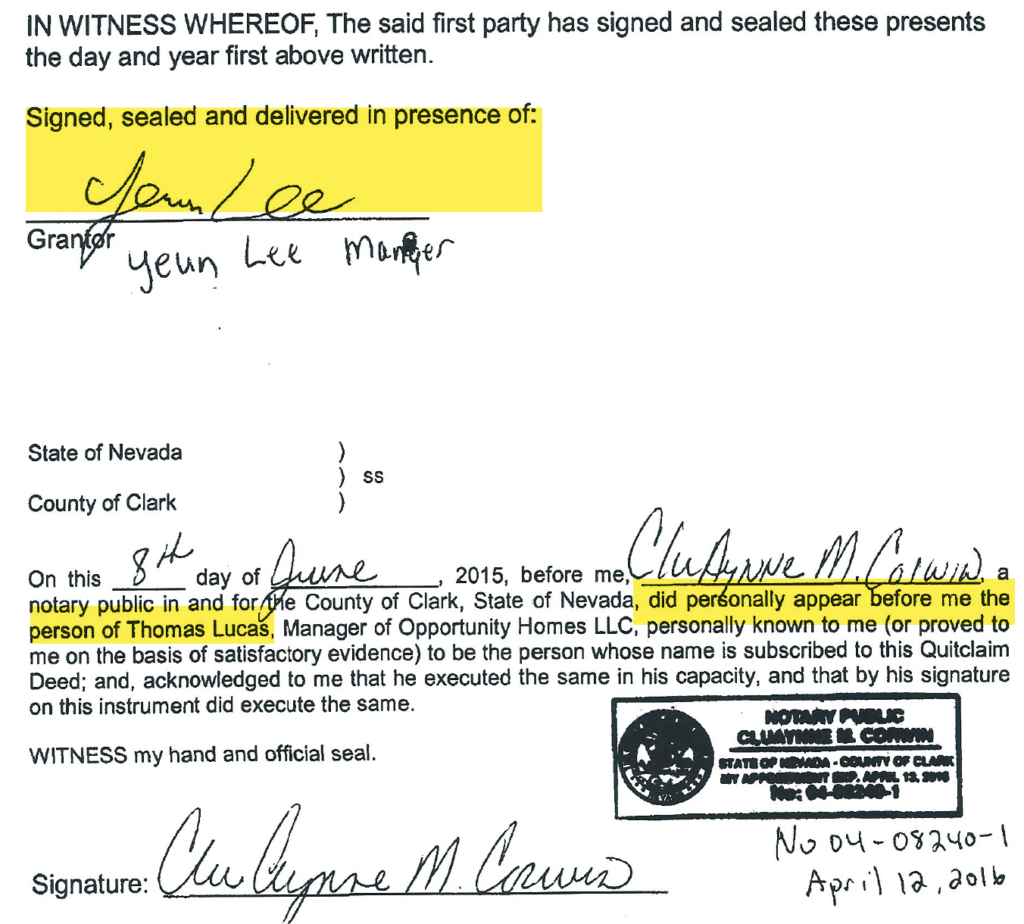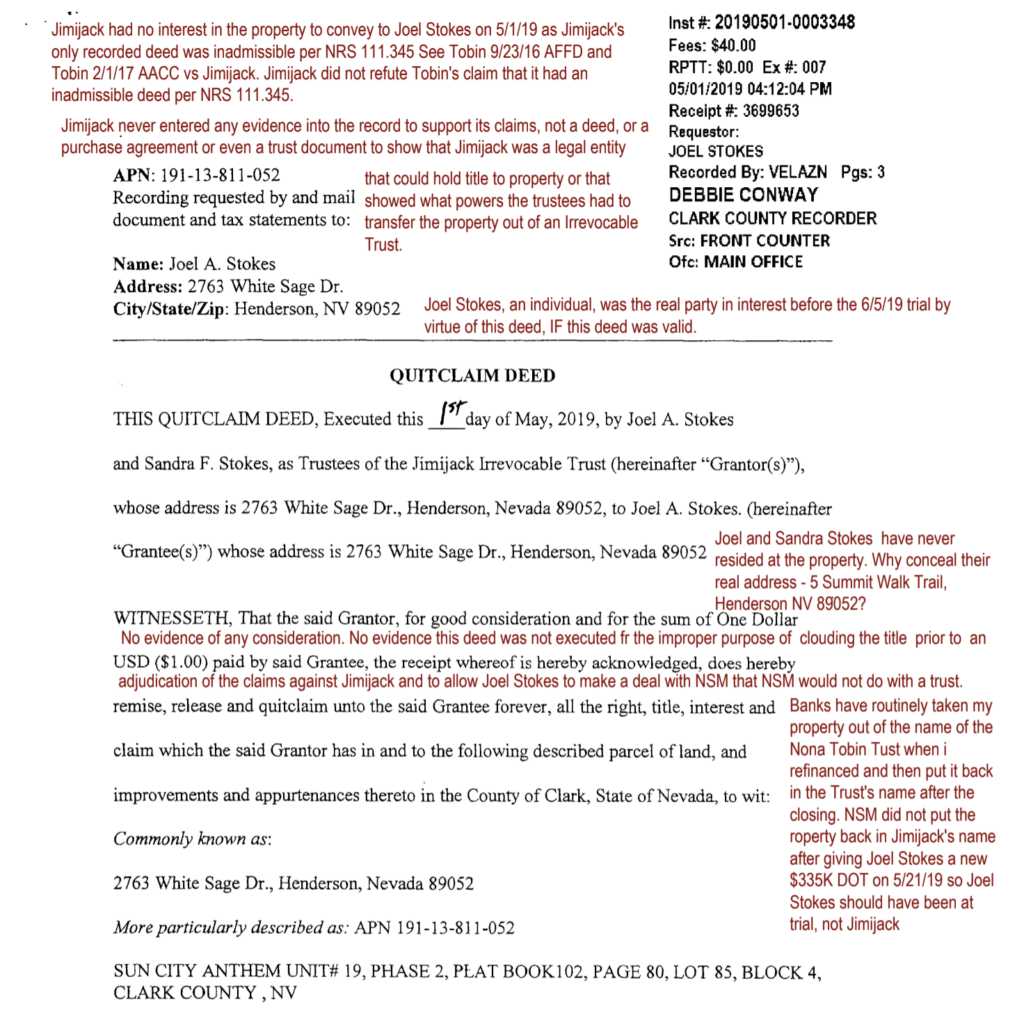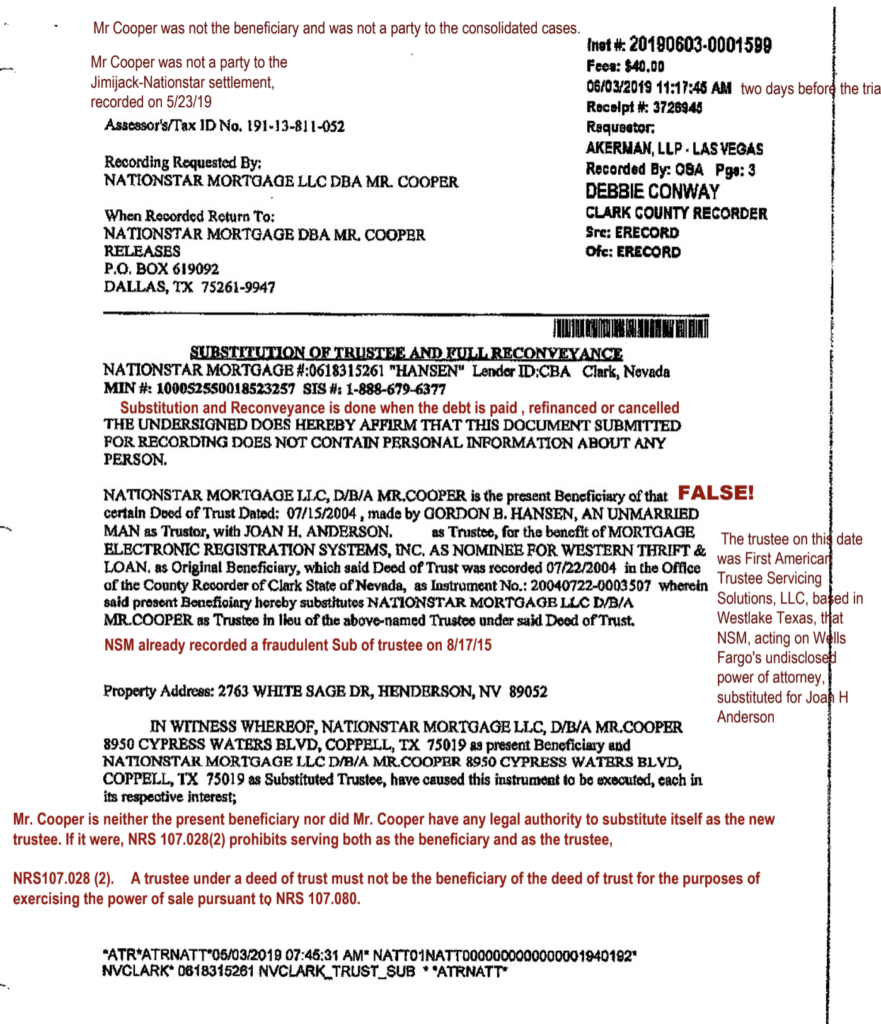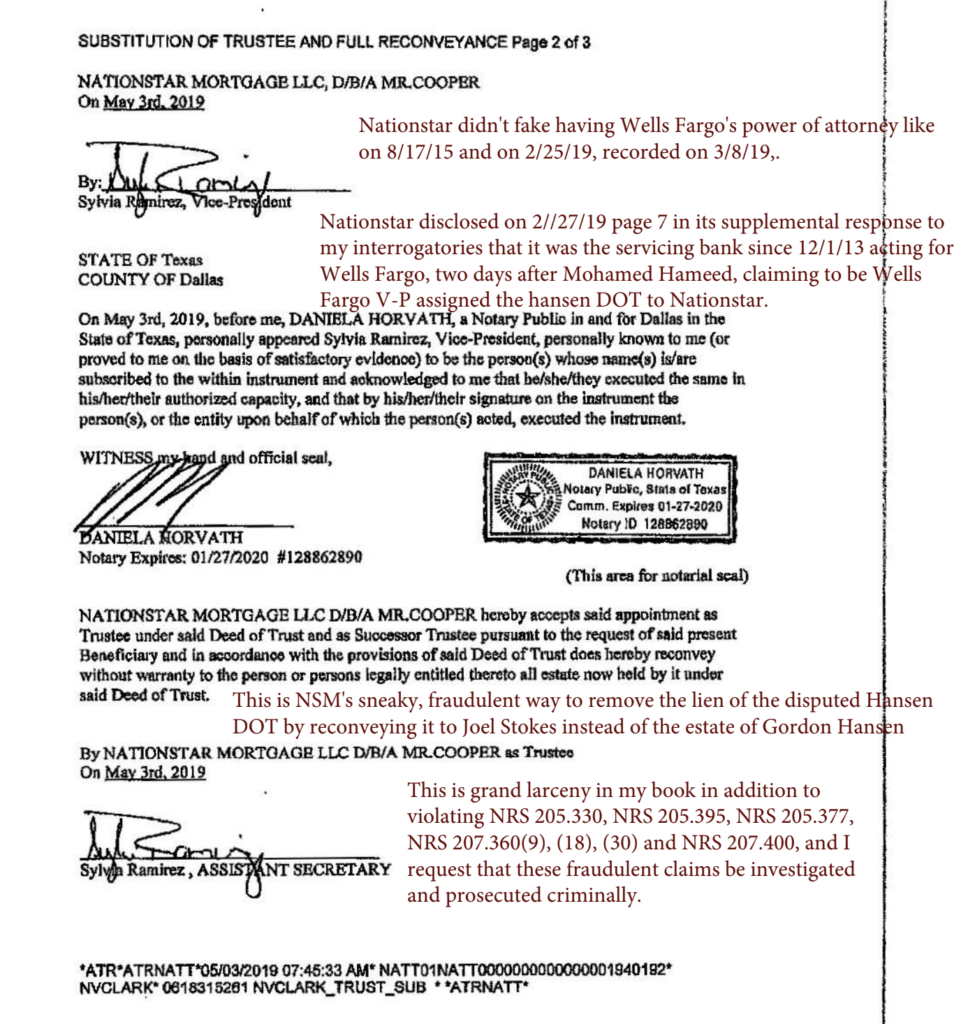It’s a crime to knowingly receive a fraudulent transfer
NRS 205.360 Knowingly receiving fraudulent conveyance. Every person who shall receive any property or conveyance thereof from another, knowing that the same is transferred or delivered in violation of, or with the intent to violate, any provision of NRS 205.345, 205.350 and 205.355, shall be guilty of a misdemeanor.
[1911 C&P § 438; RL § 6703; NCL § 10390]
NRS 205.360
NRS 205.330 Fraudulent conveyances. Every person who shall be a party to any fraudulent conveyance of any lands, tenements or hereditaments, goods or chattels, or any right or interest issuing out of the same, or to any bond, suit, judgment or execution, contract or conveyance, had, made or contrived with intent to deceive and defraud others, or to defeat, hinder or delay creditors or others of their just debts, damages or demands; or who, being a party as aforesaid, at any time shall wittingly and willingly put in use, avow, maintain, justify or defend the same, or any of them, as true and done, had, or made in good faith, or upon good consideration, or shall alien, assign or sell any of the lands, tenements, hereditaments, goods, chattels or other things before mentioned, conveyed to him or her as aforesaid, or any part thereof, is guilty of a gross misdemeanor.
[1911 C&P § 430; RL § 6695; NCL § 10382] — (NRS A 1967, 502)
NRS 205.330
Jimijack’s deed was inadmissible per NRS 111.345

Judge Kishner didn’t know about the 5/1/19 deed to Joel Stokes before the quiet title trial to determine if Jimijack had a title claim that was superior to Nona Tobin’s title.

Nationstar had no right to reconvey the Hansen deed of trust to Joel Stokes instead of to the estate of the deceased borrower

